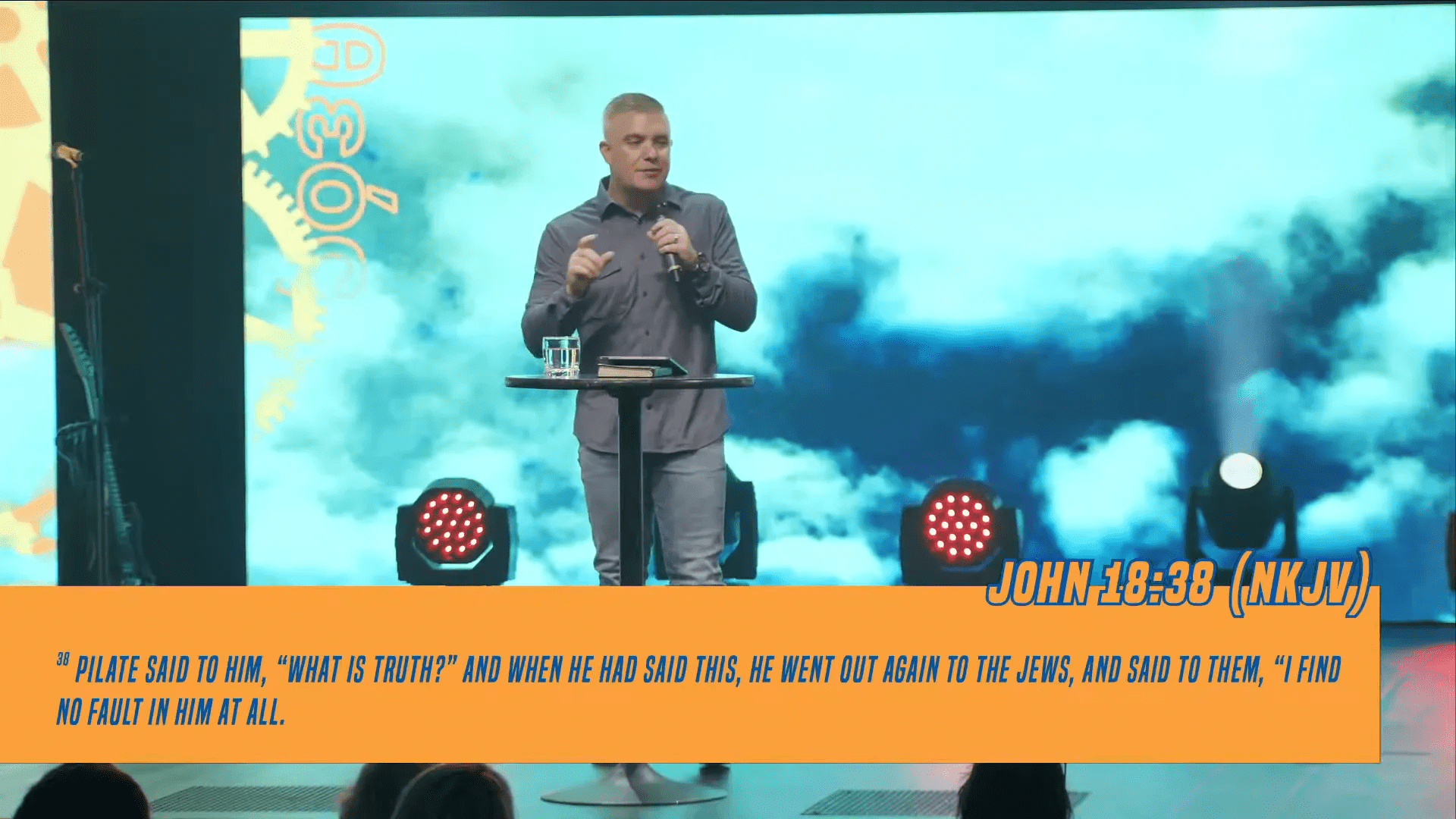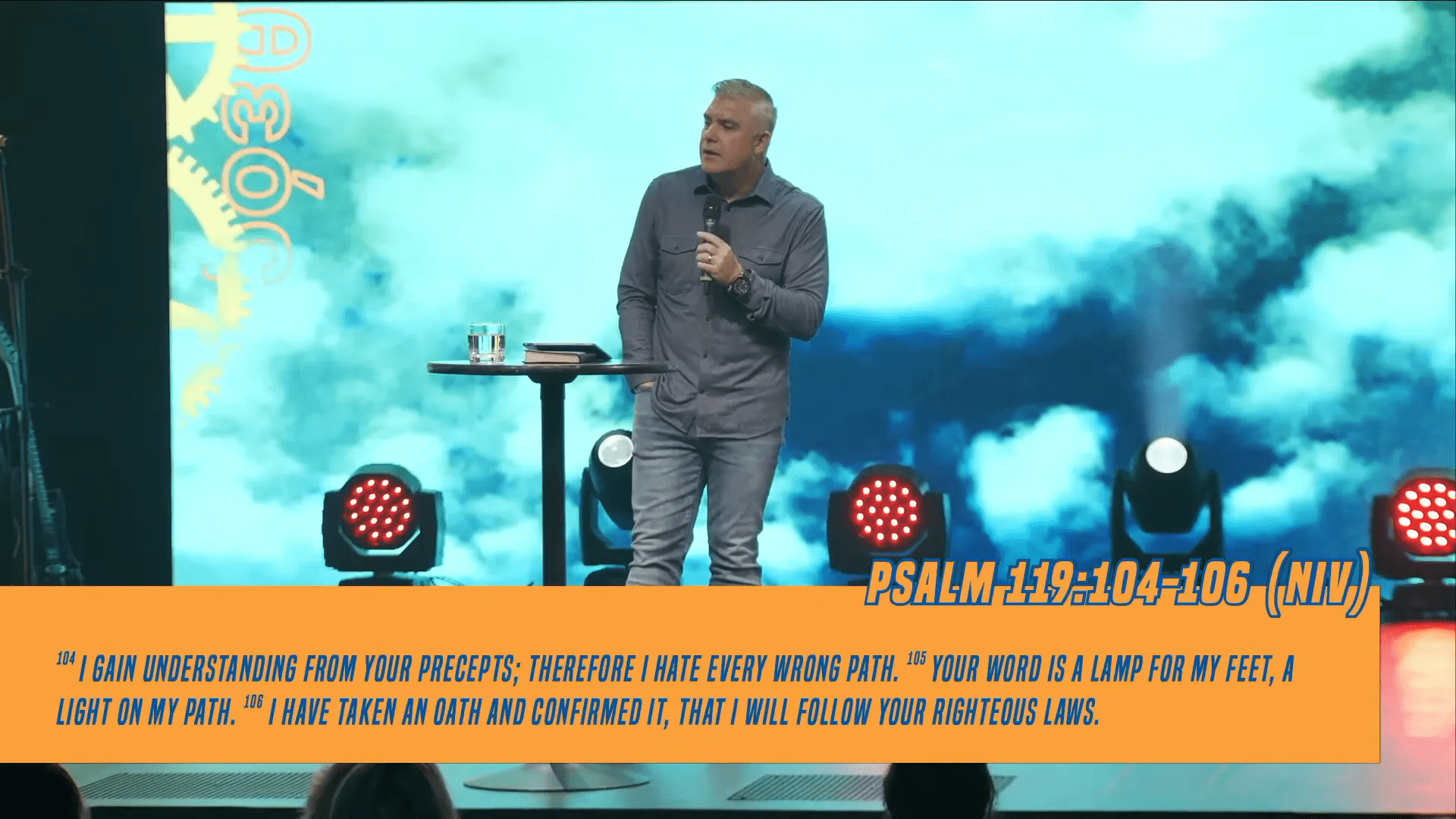Theos | Week 2 | Pastor Ben Pierce
Theos: Understanding Absolute Truth in a Relative World
In a world where personal truths often overshadow universal truths, exploring the concept of absolute truth as presented in the teachings of Jesus becomes essential. This blog delves into the significance of grounding our beliefs in God’s unchanging truth amidst societal chaos.
Welcome to our blog series, where we explore profound concepts that shape our understanding of faith and truth. We’re thrilled to have you join us as we delve deeper into these topics. Whether you’re a long-time follower or just beginning your journey, we invite you to engage with us in this exploration of belief and meaning.

A Moment of Prayer for Tragedy
In light of recent tragedies, it’s essential to pause and reflect. We remember those affected by the building collapse in Surfside, Miami. Let’s take a moment to lift them up in prayer, seeking strength for families and guidance for first responders.
Introduction to the Series: Theos
Our series, titled “Theos,” dives into the essence of God and the fundamental truths of Christianity. “Theos” translates from Greek as ‘God,’ and this series aims to deepen our understanding of His nature and our relationship with Him. Each week, we will unearth layers of meaning that can help us navigate our faith in a complex world.

The Search for Truth: Pilate and Jesus
The encounter between Pontius Pilate and Jesus is a pivotal moment in the quest for truth. Pilate, caught in a political and moral quandary, asks Jesus, “What is truth?” This question resonates through time, reflecting humanity’s struggle to discern truth amidst conflicting narratives.
As Pilate wrestles with the implications of Jesus’ identity, we see a microcosm of our own search for truth. Are we willing to confront the truths that challenge us, or do we settle for a version that aligns with our desires?

The Nature of Truth in Our World
In today’s society, truth often feels elusive. Many proclaim, “I have to find my truth,” suggesting a subjective approach to reality. Yet, this perspective can lead us astray, as personal experiences and biases cloud our understanding of absolute truth.
Truth is not merely a construct of individual perception. It is an objective reality, grounded like God and the universe He created. The laws of nature reflect this truth, providing a consistent framework that governs existence.

The Dangers of Humanism
Humanism presents a compelling narrative: that we are the architects of our destinies, deriving truth from within. However, this ideology is fraught with peril. When we look inward for truth, we often encounter our brokenness and selfishness, leading to a distorted view of reality.
By embracing humanism, we risk ignoring the external truths that provide stability and purpose. The belief that we are self-sufficient can create a vacuum of meaning, leaving us adrift in a world that lacks absolute standards.

The Historical Context of Truth
To understand the nature of truth, we must explore its historical context. For centuries, societies operated under shared beliefs and values that were often rooted in religious or philosophical systems. These frameworks provided a sense of stability and direction, allowing communities to thrive under a common understanding of right and wrong.
However, the Enlightenment ushered in an era of skepticism towards absolute truths. Individuals began to champion reason and empirical evidence over traditional doctrines. This shift led to the rise of relativism, where truth became subjective, varying from person to person. Today, we find ourselves navigating a landscape where many believe that truth is a mere reflection of personal experiences.

The Bible as the Foundation of Truth
For those seeking an anchor in a world of shifting sands, the Bible stands as a timeless foundation of truth. It is not merely a historical text but a compilation of divine revelations that have shaped the moral compass of countless generations. The Bible’s narratives, teachings, and commandments provide insights into the nature of God and humanity, offering a framework for understanding our existence.
Throughout history, the scriptures have been scrutinized and challenged, yet they remain remarkably intact. The sheer volume of manuscripts and the consistency of their messages across different cultures and epochs testify to their authenticity. This enduring relevance underscores the belief that the Bible is not just a collection of stories but a living document that speaks to the human condition.

The Relevance of Scripture in Today’s World
In a rapidly changing world, the relevance of scripture may seem diminished to some. However, the principles found within its pages continue to resonate deeply with contemporary issues. From ethics and morality to relationships and personal fulfillment, scripture offers guidance that transcends time and culture.
Moreover, the Bible addresses the complexities of human nature, including our struggles with sin, identity, and purpose. It provides a roadmap for navigating life’s challenges, encouraging believers to seek wisdom and understanding through prayer and reflection on its teachings. In this way, scripture remains a vital source of truth, illuminating paths in the darkness of modern dilemmas.

The Need for Grace and Truth
As we confront the realities of our world, it is essential to balance grace and truth. The message of the gospel is one of redemption, inviting individuals to experience God’s grace while also calling them to embrace truth. This duality is crucial in fostering a compassionate community that encourages growth and accountability.
Grace allows us to acknowledge our imperfections and failures without condemnation, while truth challenges us to rise above our circumstances and strive for a higher standard. Together, they create a powerful framework for personal transformation and community building, demonstrating that love and truth can coexist harmoniously.

The Role of the Church in Upholding Truth
The church plays a pivotal role in upholding truth within society. As a community of believers, it is called to be a beacon of light, sharing the message of the gospel and standing firm on the truths of scripture. The church is tasked with teaching, discipleship, and encouraging followers to live out their faith authentically.
Moreover, the church must engage with cultural issues, offering a biblical perspective that challenges the prevailing narratives of relativism. By doing so, it not only preserves the integrity of its teachings but also invites others to explore the transformative power of truth. The church’s commitment to truth can lead to societal renewal, as it fosters a culture rooted in love, justice, and integrity.

Conclusion: Building Life on God’s Truth
In conclusion, the pursuit of truth is an essential aspect of the Christian faith. By grounding ourselves in the teachings of the Bible, we can navigate the complexities of life with confidence and clarity. Embracing both grace and truth allows us to engage with the world authentically, offering hope and healing to those around us.
As we build our lives on the foundation of God’s truth, we are empowered to positively impact our communities. The call to uphold truth is not just for individual believers but for the church collectively, as we strive to reflect the character of Christ in all we do. In a world filled with uncertainty, let us remain steadfast in our commitment to God’s unchanging truth.
